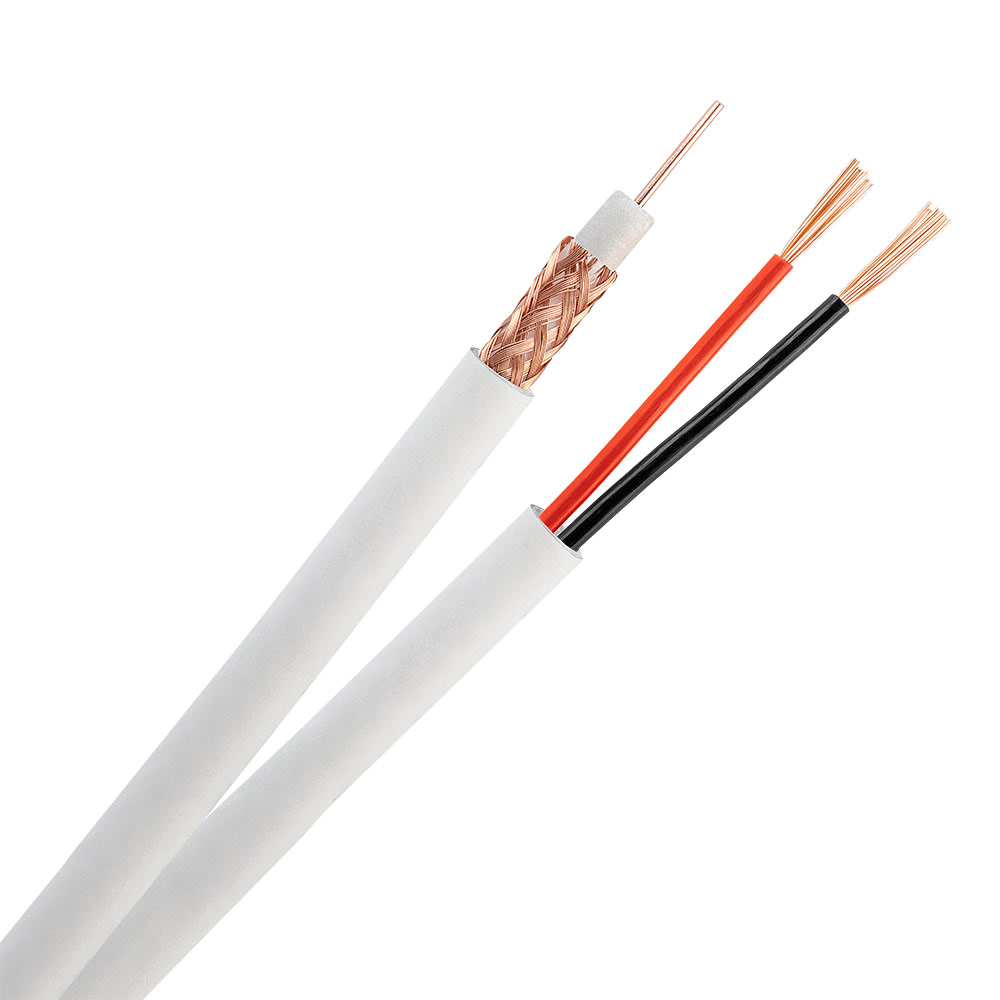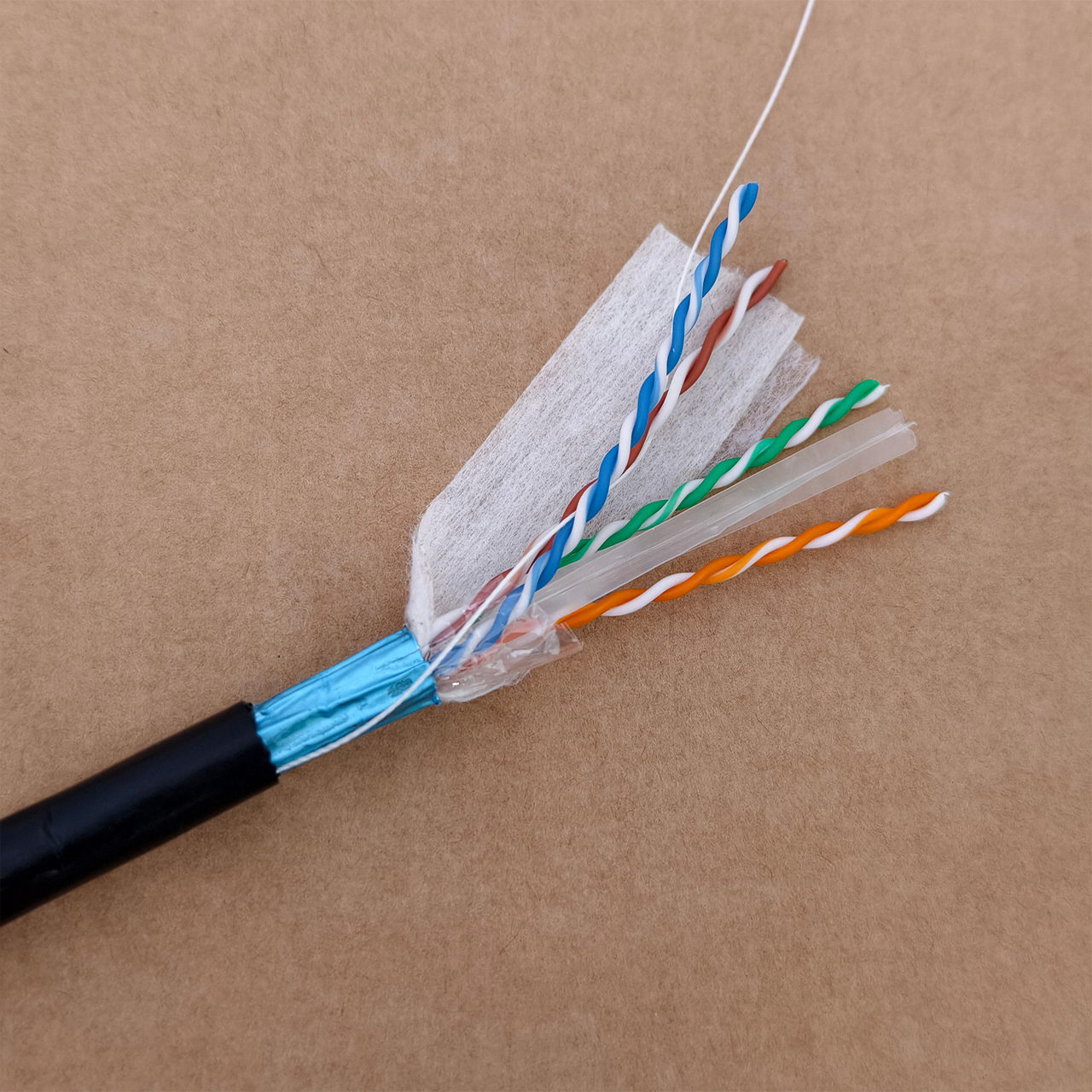Product Main Parameters
| Parameter | Detail |
|---|---|
| Voltage Rating | 300/500V |
| Test Voltage | 4kV |
| Temperature Rating (Fixed) | -40°C to 80°C |
| Temperature Rating (Flexed) | -5°C to 70°C |
| Bending Radius (Fixed) | 4 × overall diameter |
| Bending Radius (Flexed) | 12.5 × overall diameter |
| Conductor | Class 5 flexible plain copper wires |
Common Product Specifications
| No. of cores | Nominal cross sectional area (mm²) | Nominal thickness of insulation (mm) | Nominal thickness of sheath (mm) | Nominal overall diameter (mm) | Nominal weight kg/km |
|---|---|---|---|---|---|
| 3 | 1.0 | 0.4 | 0.8 | 7.9 | 104 |
| 3 | 1.5 | 0.4 | 0.8 | 8.6 | 129 |
| 4 | 1.0 | 0.4 | 0.8 | 8.5 | 124 |
| 5 | 1.5 | 0.4 | 0.9 | 10.1 | 182 |
| 7 | 1.0 | 0.4 | 0.9 | 9.9 | 181 |
| 12 | 0.75 | 0.4 | 1.0 | 10.9 | 237 |
Product Manufacturing Process
The manufacturing of SY Armored control cables involves several critical steps to ensure quality and reliability. Initially, high-purity copper conductors are extracted and annealed to enhance flexibility and conductivity. Subsequently, PVC insulation is applied to each conductor to prevent electrical interference. Braided galvanized steel wire is incorporated for mechanical protection and EMI shielding. The final step involves the application of a PVC outer sheath, which is designed to resist environmental and chemical damage. This systematic process guarantees the production of control cables capable of withstanding diverse industrial environments.
Product Application Scenarios
SY Armored control cables find extensive applications across various sectors. In industrial automation, they serve as crucial components ensuring precise control and communication between systems. The transportation industry employs these cables for reliable signal transmission in railway and automotive systems. Utility sectors, including power plants, utilize control cables to manage intricate electrical networks. Additionally, in the building and construction industry, these cables facilitate the control and automation of intelligent building systems. The versatility and reliability of control cables make them indispensable in maintaining efficient operations across these domains.
Product After-Sales Service
- 365-day warranty coverage for manufacturing defects.
- 24/7 technical support via phone and email.
- Replacement or repair for faulty products.
- Customer training for installation and usage.
- Regular updates on product improvements.
Product Transportation
Our logistics team ensures that wholesale SY Armored control cables are packaged securely to prevent damage during transportation. We utilize reliable shipping carriers with tracking options to offer timely delivery, ensuring that our products reach all corners of the globe efficiently. Custom packaging solutions are available to meet specific customer requirements.
Product Advantages
- Durability: Equipped with a galvanized steel braid, these cables are built to endure mechanical stress.
- Safety: Featuring high-temperature resistance and insulation, they offer a safe operational environment.
- Flexibility: Designed to accommodate frequent movement in dynamic industrial settings.
- Reliability: Consistent signal transmission ensures efficient system operations.
- Compatibility: Designed for varied industrial applications, enhancing versatility.
Product FAQ
- What is the minimum order quantity for wholesale control cable? The minimum order quantity for wholesale SY Armored control cables is 30 kilometers. This allows us to ensure the most efficient production and shipping processes.
- Are the cables suitable for outdoor use? SY control cables are not designed for outdoor or underground installations. They are best used in dry, moist, and wet indoor environments.
- What certifications do these cables have? Our control cables are certified with ISO9001, ISO14001, and comply with RoHS and CE standards, ensuring quality and environmental compliance.
- Can the control cables be customized? Yes, our cables can be customized to meet specific requirements, including conductor material, insulation type, and sheath color.
- How do SY Armored cables protect against EMI? The cables are equipped with a galvanized steel wire braid that acts as a magnetic screen, reducing electromagnetic interference.
- What's the temperature range for these cables? SY control cables can operate between -40°C and 80°C when fixed, and between -5°C and 70°C when flexed.
- How are the cables packaged for shipment? Cables are packaged in standard export packaging with options for custom packaging based on customer needs.
- What industries typically use these control cables? Industries include industrial automation, transportation, utilities, and construction, where precision and reliability are essential.
- Do you offer technical support for installation? Yes, we provide detailed installation guides and 24/7 technical support to assist our customers.
- What is the lead time for bulk orders? Lead times may vary based on order size and location, but typically range from 4 to 6 weeks.
Product Hot Topics
- The Evolution of Control Cables in Industrial Automation
Control cables have continually evolved alongside the growth of industrial automation. Initially, their role was limited to basic control functions in machinery. However, with advancements in technology, these cables have adapted to support complex systems. Today, they are engineered to resist interference, provide reliability across diverse environments, and ensure the seamless operation of automated processes. In wholesale markets, businesses demand cables that offer both flexibility and durability to keep pace with rapid technological changes. - Understanding EMI Protection in Control Cables
Electromagnetic interference (EMI) is a significant concern in environments with dense electronic activity. Control cables, especially those used in industrial settings, are often equipped with protective measures against EMI. The SY Armored control cable, for instance, features a galvanized steel braid that offers a dual purpose: it enhances the cable's mechanical strength and shields against electromagnetic fields that could disrupt signal transmission. Wholesale suppliers prioritize such features to ensure product efficacy in high-demand applications. - Customizing Control Cables for Specific Applications
One of the key benefits of control cables in the industrial sector is their customizability. Wholesale buyers often seek cables tailored to specific operational needs, which may include adjustments in conductor material, insulation types, and color coding. By offering customizable options, manufacturers can better serve niche markets and specialized industrial applications, ensuring that each cable meets the precise demands of its intended environment. - Why Wholesale Control Cables are Essential for Industrial Growth
The wholesale market for control cables has seen substantial growth paralleling the expansion of global industries. Control cables are fundamental to operations across multiple sectors, from automation to construction. By supplying these cables wholesale, companies not only meet the high demand for reliable electrical infrastructure but also support broader economic development initiatives by contributing to efficient industrial operations and innovation. - The Intersection of Safety and Efficiency in Control Cable Design
Modern control cable design is a balance between safety and efficiency. Wholesale suppliers focus on developing cables that minimize hazards while optimizing performance. Features such as rigorous insulation, temperature resilience, and EMI protection are integral to this balance. As industries push for higher operational standards, the demand for cables that embody both safety and efficiency will continue to rise, making them a staple in the wholesale market. - Global Demand Trends for Control Cables in Emerging Markets
Emerging markets are rapidly adopting advanced technologies, driving the demand for reliable control cables. Wholesale suppliers play a crucial role in meeting this demand, offering solutions that cater to diverse geographic and industrial contexts. As infrastructure projects and industrialization efforts expand abroad, the need for high-quality control cables will only increase, presenting significant opportunities for growth in the wholesale sector. - Future Innovations in Control Cable Technology
The evolution of control cables is marked by continuous innovation aimed at improving performance and resilience. Future developments are likely to focus on enhancing materials that increase flexibility, decrease weight, and offer even greater resistance to environmental factors. Wholesale suppliers are tasked with staying ahead of these trends to provide cables that meet the ever-evolving needs of modern industries. - Environmental Impacts of Control Cable Production and Use
The production and use of control cables have both direct and indirect environmental implications. Wholesale suppliers are increasingly adopting sustainable practices, from sourcing materials responsibly to minimizing waste through efficient production techniques. The demand for environmentally-friendly products is shaping the wholesale market as consumers and industries seek to reduce their ecological footprints. - Comparing Control Cables: Which Type Best Suits Your Needs?
Choosing the right control cable involves assessing several factors, including application demands, environmental conditions, and budget. Wholesale suppliers offer a range of options, from flexible to shielded cables, each suited to specific scenarios. By understanding the unique characteristics of each type, businesses can make informed decisions, ensuring they invest in cables that align with their operational requirements. - The Role of Certifications in Control Cable Quality Assurance
Certifications such as ISO9001 and CE play a pivotal role in assuring the quality and reliability of control cables. For wholesale suppliers, obtaining these certifications is crucial to validate product quality and meet international standards. Customers increasingly prefer certified products, knowing they comply with stringent safety and performance criteria. This trend underscores the importance of certifications in bolstering market confidence and credibility.
Image Description












